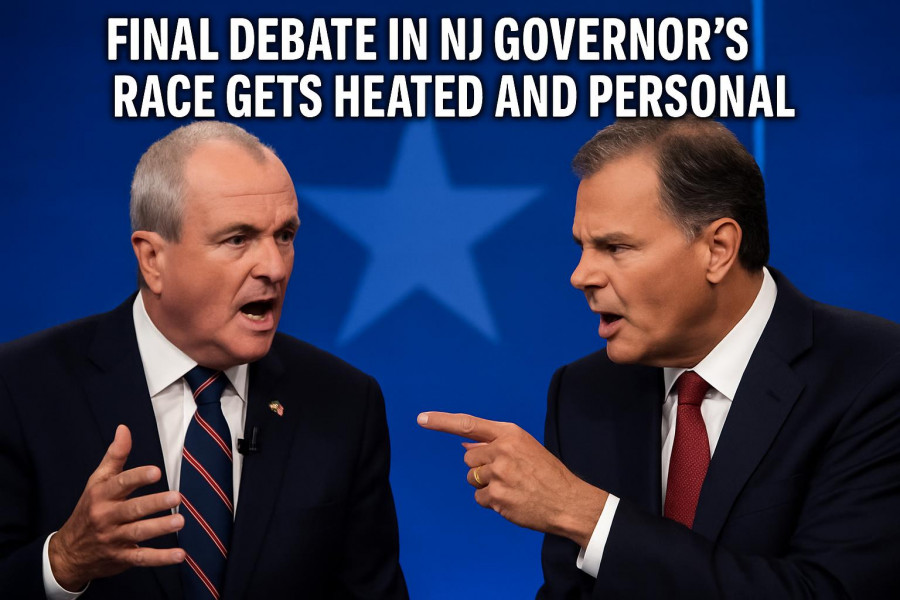
The Final Showdown for New Jersey's Governorship
As the New Jersey gubernatorial election inches closer, the stakes reached a new height in the second and final debate between Democrat Mikie Sherrill and Republican Jack Ciattarelli on October 8, 2025. With affordability issues dominating voter concerns, this debate reflected the candidates' contrasting visions for the state's future, alongside personal attacks that intensified the discourse.
Affordability at the Forefront
Both candidates took a firm stance on affordability, a theme that's igniting frustration among New Jerseyans. Sherrill, the incumbent U.S. Representative, declared her commitment to making New Jersey a more affordable place to live by proposing to declare a state of emergency on energy costs. “I’m laser-focused on driving down your costs, making New Jersey more affordable,” she asserted. In contrast, Ciattarelli highlighted a perceived overdevelopment crisis in suburban areas, indicating that property taxes and rising energy bills are suffocating middle-class families.
Personal Attacks Heat Up
The debate wasn’t just about policy; it was a personal affair. Sherrill accused Ciattarelli of responsibility for opioid-related deaths, attributing harmful practices from his previous medical publishing company to the ongoing crisis. The exchange became heated, with both candidates shouting “shame on you” at each other. This marked a shift in tone from their earlier, more reserved discussions, indicating a last-ditch effort to sway undecided voters.
Controversial Connections
On the topic of former President Trump, the candidates couldn’t have been further apart. Ciattarelli praised Trump’s policies, giving him an 'A' for his administration's economic measures, while Sherrill flatly failed him, linking his presidency to rising costs in New Jersey. The debate highlighted how closely both candidates view the presidency's role in their campaigns—Ciattarelli butting heads with Sherrill over her partisan claims while asserting that he would support policies fostering a better relationship with a Trump-led administration.
Defending Records Under Fire
Sherrill defended her military service record, explaining her absence from graduation due to a decision not to report cheating among classmates—a choice she argued came from a strong sense of accountability. Ciattarelli, however, pushed for transparency, asking her to release additional records related to her service, implying her defense was not sufficient to quell doubts.
A Focus on Future Policies
Both candidates presented their visions for tackling rising utility costs and ensuring public safety. Sherrill outlined plans to enhance renewable energy efforts—including nuclear power—as a method to ultimately reduce energy bills. Conversely, Ciattarelli criticized past investments in green energy, suggesting a balance of energy sources would help lower costs and improve service reliability. Their respective approaches reflected a broader debate about how New Jersey should navigate its energy future amidst a changing climate.
This lively debate marks a critical juncture for voters in Sussex County, NJ, Andover Borough, and beyond, as they weigh their options heading into Election Day. With personal attacks underscoring the stakes, voters must decide not only on policies but on character as they prepare to cast their ballots for the governor’s race.
 Add Row
Add Row  Add
Add 



Write A Comment